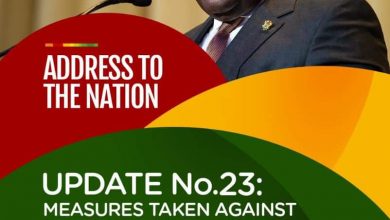Ghana implements new Okada rules: Riders must be 25 years or older

Individuals seeking to operate commercial motorcycles or tricycles, commonly known as ‘okada,’ will only be permitted to do so if they are members of a recognized tricycle transport union or employed by a licensed commercial motorcycle company.
This requirement, along with the stipulation that riders must be at least 25 years old, is part of a new Legislative Instrument (LI) being developed to amend the existing Road Traffic Regulations, 2012 (Legislative Instrument 2180).
Speaking at a national stakeholder consultation in Accra on Monday, April 7, 2025, regarding the draft LI 2180, Minister of Transport Joseph Bukari Nikpe explained that the government was implementing a new licensing system aimed at improving the monitoring of commercial motorcycles and tricycles, ensuring operators meet required competency standards.
“Our top priority is ensuring the safety and well-being of both riders and passengers.
As such, certain provisions in the regulations will mandate the use of helmets, regular inspections, and rider training,” said Mr. Nikpe during the meeting, which marked the first of a nationwide consultation to review LI 2180 and facilitate the official operationalization of okada—a popular business among the youth.
The consultative meeting gathered representatives from the Motor Traffic and Transport Department (MTTD) of the Ghana Police Service, the Ghana Private Road Transport Union (GPRTU), the association of okada riders, heads of relevant agencies, industry professionals, civil society organizations, and transport operators.
“A person shall not ride or operate a commercial motorcycle or tricycle unless that person is employed by or belongs to a licensed commercial motorcycle or tricycle transport union,” the new provisions propose.
Anybody who flouts the provision, when it becomes law, by operating “a motorcycle or tricycle for fare-paying passenger services in contravention of sub-regulation (1) commits an offence and is liable to pay a fine of 100 penalty units or to a term of imprisonment or both”.
Motorcycles and tricycles have become an essential part of our transport system over the past decade.
They are particularly valuable for last-mile connectivity and in areas where traditional public transport options, such as tro-tros and taxis, struggle to reach; they fill that gap effectively.
In certain urban areas, especially in the northern regions, motorcycles and tricycles have effectively replaced traditional public transport vehicles.





